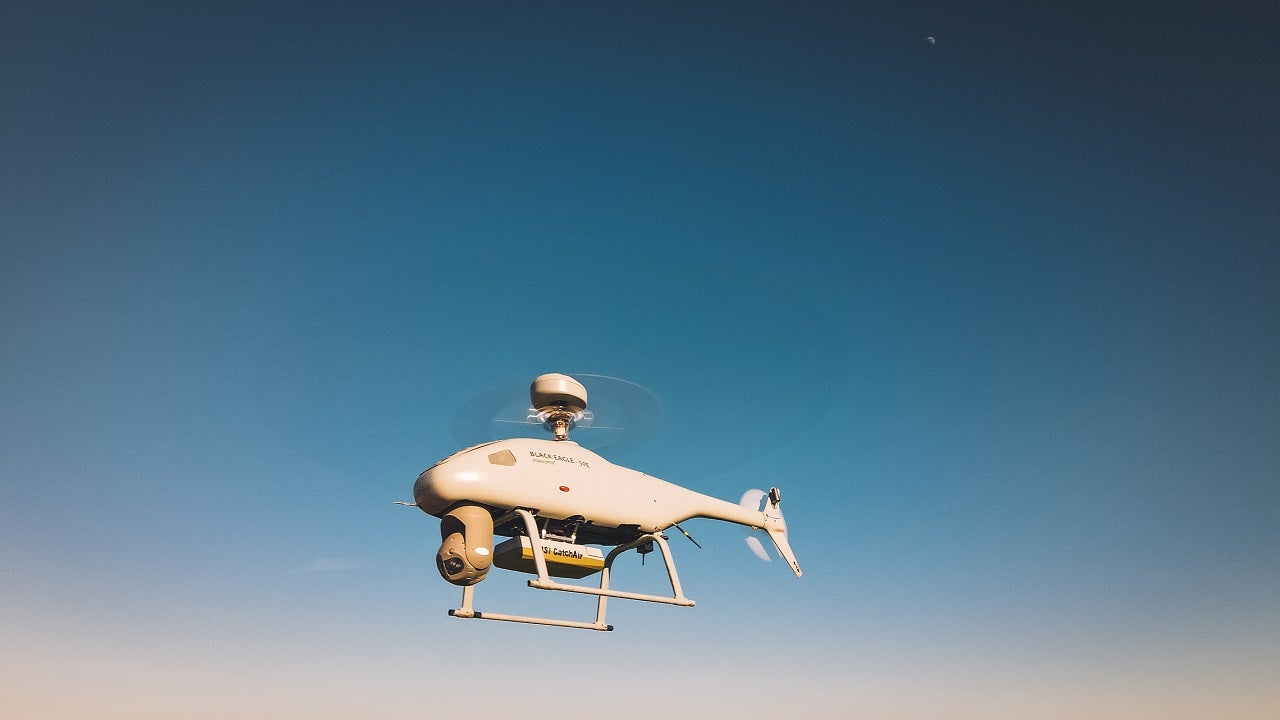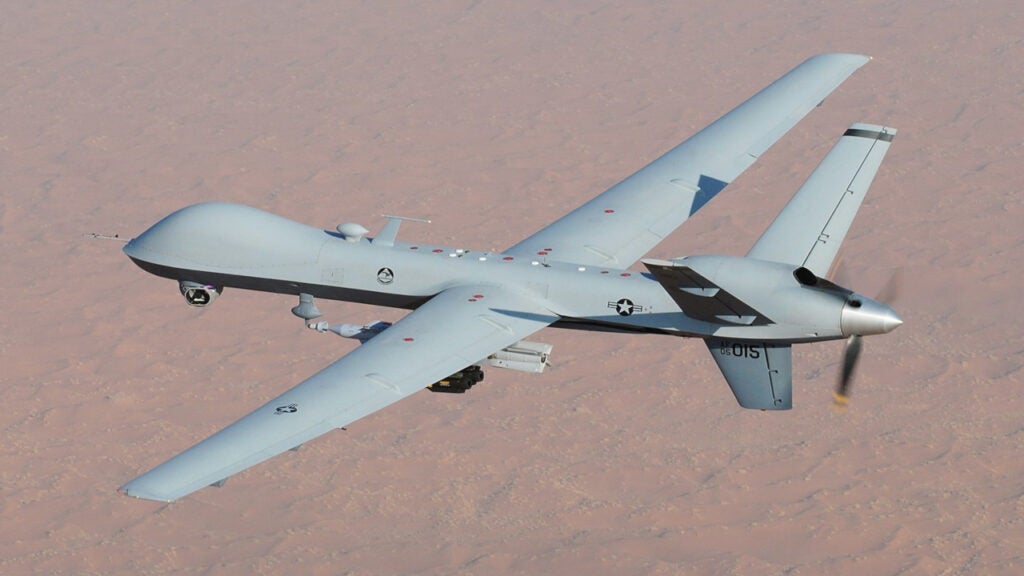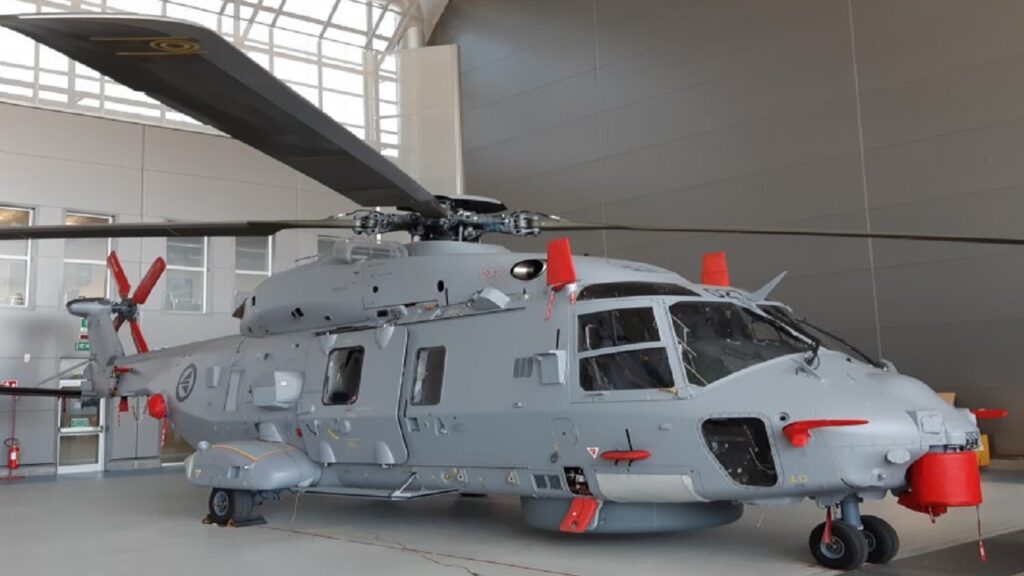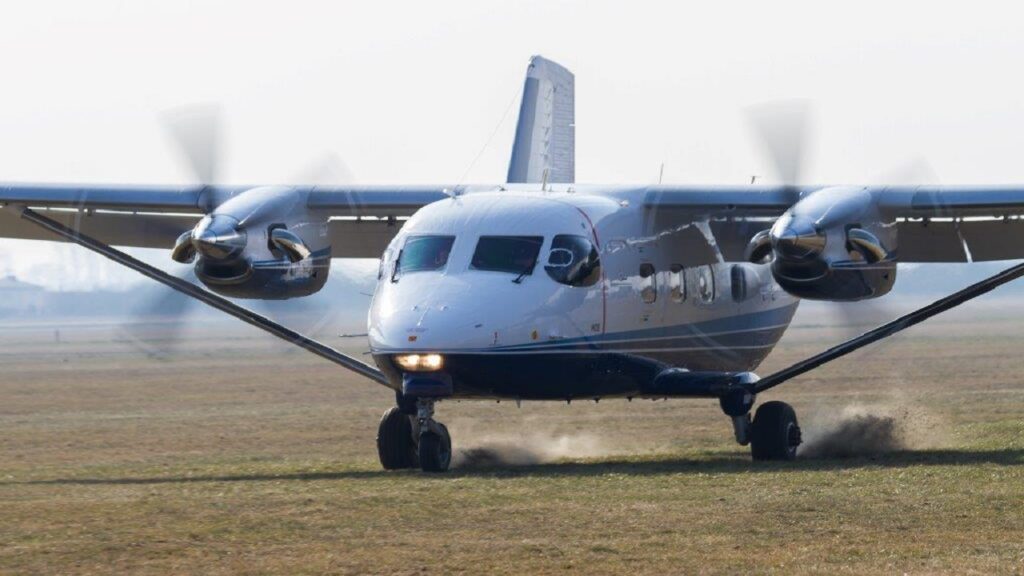
Black Eagle is a rotary unmanned aerial vehicle (RUAV) developed by Steadicopter, an Israeli manufacturer of advanced unmanned robotic helicopters.
The Black Eagle family of RUAV includes Black Eagle 50, Black Eagle 25E and Black Eagle 50E models.
The RUAV serves as a robotic observation system for use in military, civil, and homeland security missions. It is designed to support maritime and land-based intelligence, surveillance, target acquisition and reconnaissance (ISTAR) missions.
Steadicopter displayed the Black Eagle family at the IDEX event held at Abu Dhabi National Exhibition Centre in February 2021.
Black Eagle drone design and features
Unveiled at the Eurosatory exhibition in June 2018, the Black Eagle 50 drone system has a length of 2.54m and main rotor diameter of 2.16m. It has the capacity to carry a maximum payload of 5kg. The Black Eagle 50 RUAV was approved by the Civil Aviation Authority of Israel (CAAI) for commercial use in the country’s civilian airspace.
The drone is installed with FlightOps drone operating system, which improves the platform’s autonomous capabilities. The operating system allows the aerial vehicle to operate in shared airspace, supports real-time autonomous decision-making, and also increases flight safety, mission capabilities, and efficiency.
Furthermore, the integration of FlightOps provides the opportunity to operate multiple drones in collaboration with other unmanned aircraft, systems, and sensors to conduct complex missions.
The drone system is incorporated with a ground control system (GCS), ADS33 standard flight control computer, mission computer, integrated communication system, and payload sub-systems.
The Black Eagle systems can be used in different applications in homeland security, police, offshore and military ISR missions.
Variants of Black Eagle drone
The latest variants of the Black Eagle RUAV family include Black Eagle 25E and Black Eagle 50E which are designed to conduct law enforcement, maritime, covert, and civilian missions. The newest variants are based on the Black Eagle 50 platform.
The UAS is powered by electric engine, which significantly reduces the weight of the system and increases payload capacity. The zero-logistic footprint of the variants enables them to perform maritime operations.
Black Eagle 25E weighs 25kg and is suitable for tactical-urban missions. It has an endurance of up to 30 minutes in hover mode and up to one hour in flight mode.
Black Eagle 50E has a gross weight of 35kg and can carry out covert operations. It has an endurance of up to 50 minutes in hover mode and up to one and half an hour in flight mode.
Payloads
The drone can be integrated with various camera payloads including HD D-stamp, M-Stamp and the T-XR cameras. All the Stamp family payloads are light-weight, stabilised, electro-optical, airborne sensors which can be carried by a mini UAS.
Communications and ground control system
The communications between the aircraft and the ground controller is carried out through a data link within a range of up to 150km. The data link enables the streaming of live video and data.
The drone’s GCS is mainly responsible for mission planning, debriefing, control, and maintenance activities in line with the requirements of military missions. A geographic information system (GIS) 2D/3D map and a point & click interface allow the GCS operator to create and change flight missions in real time.
The GCS features a joystick for improved camera control and has a minimum endurance of six hours.
Black Eagle performance
The unmanned aerial vehicle has a maximum air speed of 70k and cruising speed of 45k. It has a maximum take-off weight of 35kg and can fly for up to four hours.
The Israeli drone can operate in temperatures ranging between -10°C and +45°C and has a service ceiling of 10,000ft. Black Eagle 25E can carry payloads of up to 2kg, while the payload carrying capacity of Black Eagle 50E is up to 12kg.
Contractors involved
Apollo Micro Systems signed an agreement with Steadicopter to market and promote Black Eagle 50 RUAV in India or other markets, in February 2019.



